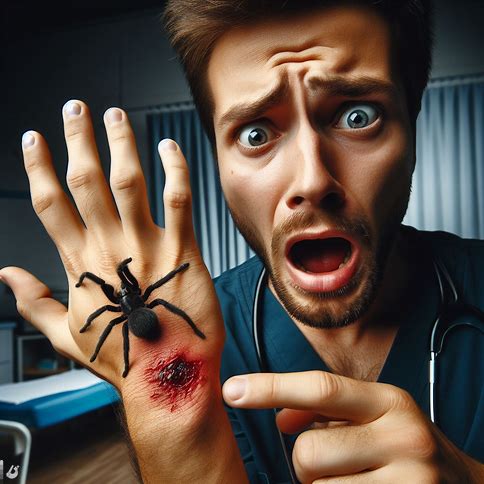In the quiet corners of Eastern Australia, the Black House Spider (Badumna insignis) lurks, mostly keeping to itself. Rarely venturing into human habitats, these creatures are generally benign. However, understanding the appropriate response to a bite can dispel fear and ensure safety. This guide offers a step-by-step approach to dealing with a Black House Spider bite, from identification to prevention.
Identifying a Black House Spider Bite
The hallmark of a Black House Spider bite includes mild discomfort, redness, and swelling. While these bites are seldom a cause for alarm, recognizing them is the first step in effective management.
Immediate Actions to Take
Stay Calm: Keep your cool. Panic can exacerbate the situation, increasing stress and potentially intensifying symptoms.
Clean the Area: Gently cleanse the bite site with mild soap and water. This simple act can ward off infection and aid in healing.
Apply a Cold Compress: Use ice or a cold pack, wrapped in a soft cloth, on the bite site to soothe pain and minimize swelling. Limit each application to 10-15 minutes to protect the skin.
Monitoring Symptoms Post-Bite
Manage Pain: Over-the-counter pain relievers such as acetaminophen or ibuprofen can alleviate discomfort. Follow dosage instructions carefully to avoid complications.
Watch for Allergies: Be vigilant for signs of an allergic reaction, including difficulty breathing, hives, or chest pain. These symptoms necessitate immediate emergency care.
When to Seek Professional Medical Help
While most bites from Black House Spiders are mild, certain conditions warrant professional medical attention:
Severe Symptoms: If symptoms escalate, spreading beyond the bite area, it’s time to consult a healthcare provider.
Allergic Reactions: Any indication of an allergic reaction, such as shortness of breath or rapid heartbeat, requires urgent medical intervention.
Persistent Symptoms: A medical professional should evaluate symptoms that linger or worsen over time to rule out complications.
Preventive Measures Against Spider Bites
Prevention is your best defense against spider bites:
Maintain Cleanliness: A tidy environment is less inviting to spiders. Regular cleaning reduces hiding spots and deters spiders from settling in.
Wear Protective Clothing: When venturing into spider-prone areas, don protective gear such as long sleeves and gloves. Think of it as your shield against unwelcome bites.
Conclusion:
Though the thought of a spider bite might be unsettling, proper knowledge and preparedness can make all the difference. Most encounters with Black House Spiders can be managed safely and effectively by staying calm, treating the bite appropriately, and monitoring symptoms. Always err on the side of caution and seek medical advice if symptoms are severe or persist. Additionally, embracing preventive measures can significantly reduce the likelihood of bites.
